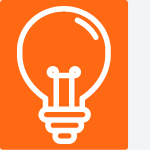What is a POS system?
A POS system, or point-of-sale system, facilitates transactions in retail sales. An example of a well-known POS system would be a cash register. Modern POS systems are a combination of hardware and software that often includes a barcode scanner, card reader, cash drawer, and receipt printer. The customer interface is often a touchscreen. The simplest modern POS systems are a credit card scanner connected to a tablet.
The 12 Best POS Systems for 2022
- Best POS hardware options: Clover
- Best POS for restaurants of all sizes: Toast
- Best POS for retail: Lightspeed
- Best POS for guest experience:TouchBistro
- Best POS for tracking sales: GoDaddy
- Best POS for brick-and-mortar businesses: Square
- Best POS for small restaurants: Upserve POS
- Best POS for payment methods: CardConnect
- Best POS for ease of use: Epos Now
- Best POS for customization: Lavu
- Best POS for established restaurants: Revel Systems
- Best POS for transparent pricing: Helcim
- A POS system allows you to accept customer payments and track your sales.
- Businesses with more complex needs may also need a way to manage their inventory, customers and staff.
- You should look for an easy-to-use POS system that meets all your business's needs.
- This guide is for small business owners and merchants looking for the right POS system.
It used to be that a cash register was all a business needed to ring up customers and accept payments. But today, businesses also need a way to take payments, track sales, manage inventory and generate reports. The right POS system can handle all of that for you.
Whether you're on the hunt for your first POS system or looking to upgrade, it's hard to know which one will be the best fit for your business. We did the work to evaluate POS systems for you. During our review, we considered factors like affordability, ease of use and overall functionality. We also looked for cloud-based solutions that are easy to set up. Keep reading to learn more about our top picks for small business POS systems.

















 Did you know?: Because of their mobility, affordability, and usability, cloud-based POS systems are becoming the norm for small businesses. In particular,
Did you know?: Because of their mobility, affordability, and usability, cloud-based POS systems are becoming the norm for small businesses. In particular,  Tip: If you prefer more extensive customer relationship management than you can find in a POS system, consider one of our picks for the
Tip: If you prefer more extensive customer relationship management than you can find in a POS system, consider one of our picks for the  FYI: Three POS reports you should run regularly are sales summaries, sales per product, and sales per customer. Learn
FYI: Three POS reports you should run regularly are sales summaries, sales per product, and sales per customer. Learn 